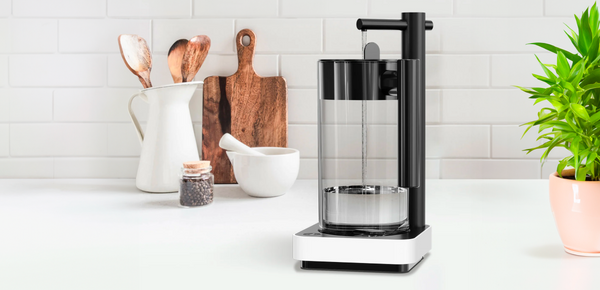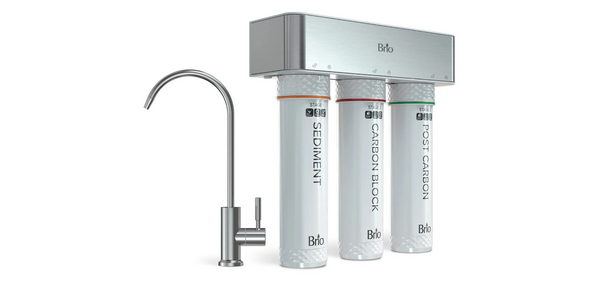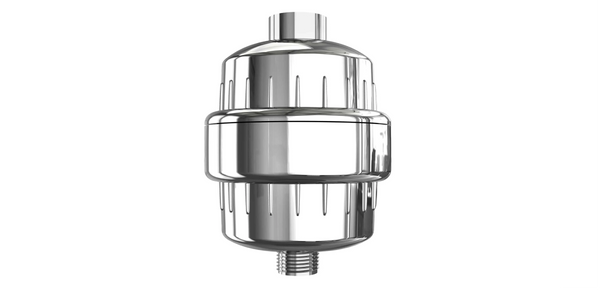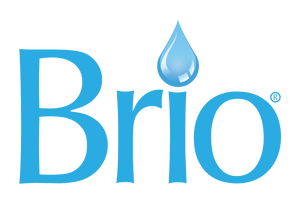In the age of environmental consciousness, sustainable choices have become a fundamental aspect of our everyday lives. From the products we use to the food we consume, the focus has shifted toward eco-friendly alternatives that reduce our carbon footprint. When it comes to hydration, although bottled water may seem convenient, it has a hefty environmental cost: plastic waste, fossil fuel consumption, and pollution.
There’s a better way.
Sustainable water filtration systems align perfectly with this eco-friendly mindset, offering not only convenience but also a commitment to a greener planet. By opting for an eco-friendly water filter, we not only protect our health, but are also kind to the planet. Let’s explore the environmental impact of choosing filtered water over bottled alternatives and delve into the eco-friendly aspects of water filtration.

The problem with pitchers
In your search for the perfect eco-friendly way to consume water, you may have come across the classic combo of water filter cartridges and pitchers. Although there are plenty of sustainable models on the market that seem like a convenient solution, they have their drawbacks.
These products often fall short in terms of water purification, capacity, and convenience. They require frequent refilling, take up space in the fridge, and may not provide the level of filtration needed to ensure clean, safe drinking water for you and your family.

Here at Brio, we have come up with an elegant alternative: the Brio Amphora Reverse Osmosis Under Sink Filtration System with Pitcher. No more cluttering up the fridge: this compact filtration system fits neatly under any kitchen sink without encroaching on storage space.
The portable artesian-style carafe automatically fills with perfectly clear, filtered water (a clever built-in lid sensor tells the system when the pitcher is full). Simply remove from the base and pop on the table for everyone to help themselves to pure water at mealtimes. Replace on its base, and the pitcher refills like magic. Plus, the 5-in-1 reverse osmosis filter reduces water impurities, including rust, dirt, dust, chlorine, and more.
The problem with plastic
One of the most significant benefits of eco-friendly water filtration systems is the reduction of plastic waste. Every year, billions of plastic water bottles end up in landfills or polluting our oceans, contributing to environmental degradation and harming marine life. These bottles, often single use, profoundly impact our environment, from production to disposal, presenting several significant problems:
The single-use dilemma
The convenience of single-use plastic bottles has led to widespread consumption. In the U.S. alone, millions of plastic bottles are discarded daily. Globally, only 9% of plastic is recycled, highlighting the magnitude of the disposal issue.
Environmental pollution
Plastic waste is a pervasive pollutant in ecosystems worldwide. It litters landscapes, pollutes water bodies, and harms marine life. Plastic debris can be ingested by animals, leading to injury, suffocation, and death. It also disrupts habitats and ecosystems, impacting biodiversity.
Microplastic contamination
Plastic waste breaks down into smaller particles called microplastics, which can infiltrate soils, waterways, and the air. Microplastics can enter the food chain, potentially harming organisms and posing risks to human health.

Longevity
Most plastics are non-biodegradable, meaning they may persist in the environment for hundreds to thousands of years. This longevity exacerbates the accumulation of plastic waste over time and makes it challenging to remediate plastic pollution once it has entered the environment.
Resource depletion
The production of plastic requires significant amounts of fossil fuels, such as petroleum and natural gas. According to the Pacific Institute, producing one plastic bottle can require three times the amount of water that bottle can hold. As these resources are finite and contribute to greenhouse gas emissions, the widespread use of plastic exacerbates resource depletion and climate change.
Toxicity
Some plastics contain additives and chemicals that can leach into the environment, posing risks to ecosystems and human health. Persistent organic pollutants (POPs) and other hazardous substances can accumulate in plastic debris, amplifying their toxicity over time.
Economic costs
Plastic pollution imposes economic costs on communities and industries. These include expenses related to cleanup efforts, damage to infrastructure (e.g., clogged storm drains), and losses in tourism and fisheries due to degraded environments.
By using an eco-friendly water filter system, you can eliminate the need for single-use plastic bottles and help curb the plastic pollution crisis.
Why sustainable water filtration systems are planet friendly
Water filtration systems aren’t just about making tap water safe to drink – they are key to promoting a sustainable water supply, reducing plastic waste and a healthier lifestyle. Here’s how:
Kinder to the planet
Eco-friendly filtration systems typically use sustainable materials and processes, minimizing their carbon footprint and reducing environmental harm compared with traditional systems. This includes using renewable energy sources, recyclable materials, and reducing chemical usage.
Healthier drinking water
Eco-friendly water filtration systems often employ advanced technologies that effectively remove contaminants while preserving essential minerals in the water. This ensures access to clean, safe, and healthy drinking water without the need for single-use plastic bottles or chemical additives. You’re also more likely to drink up if you have delicious H2O on tap.
Healthier lifestyle
Looking after our health can have positive ripple effects on the environment by promoting sustainable behaviors, reducing resource consumption, minimizing pollution, and fostering a positive environmental mindset. By prioritizing both personal well-being and environmental sustainability, we can work towards a healthier and more resilient planet for ourselves and future generations.

Saves money
While the initial investment in an eco-friendly water filter may be higher, it does lead to long-term cost savings. By eliminating the need for bottled water and reducing energy and maintenance costs, sustainable water filtration systems can be more economical over time.
Reduces plastic waste
Eco-friendly water filtration systems mean you can significantly reduce your reliance on single-use plastic water bottles. This helps decrease plastic pollution in landfills and oceans, contributing to a cleaner and healthier environment.
Customized filtration options
Eco-friendly water filtration systems often offer customizable options to address specific water quality concerns in your area. Whether you’re dealing with hard water, chlorine taste, or contaminants like lead or arsenic, you can choose a filtration system tailored to your needs.
Convenient and accessible
Having an eco-friendly water filter at home provides convenient access to clean drinking water whenever you need it, without the hassle of purchasing and storing bottled water. This can encourage healthier hydration habits for you and your family.
Supports sustainable practices
By choosing an eco-friendly water filter, you're supporting sustainable practices and environmentally responsible companies. This helps drive demand for eco-friendly technologies and encourages further innovation in water treatment and conservation.
Inspires future generations
Choosing an eco-friendly water filter is not just about protecting our planet today, it’s also about shaping a more sustainable future for generations to come. By modeling environmentally responsible behavior and teaching our children the importance of reducing single-use plastic waste and conserving resources, we empower them to become stewards of the earth and advocates for positive change.
Which eco-friendly water filter should I opt for?
If you live in an area with chlorine-heavy municipal water, for example, you can harness the power of a whole-home filtration system at a fraction of the price by combining an under-sink filtration system and a shower filter. These systems not only remove harmful contaminants from your drinking water but also protect your skin and respiratory health by filtering out chlorine and other chemicals from your shower water.
Brio undersink filtration systems

These are installed directly under your kitchen sink, providing easy access to filtered water for drinking and cooking without the need for countertop or pitcher filters. While undersink filtration systems may have higher upfront costs compared to pitcher filters, they often prove to be more cost-effective in the long run. They require less frequent filter replacements, resulting in lower ongoing maintenance costs over time.
Discover Brio’s eco-friendly undersink filtration systems.
Brio shower filters

Shower filters are typically easy to install and require minimal maintenance. They can be attached to the existing shower arm or head without the need for professional plumbing services. Filter cartridges usually need to be replaced every few months, depending on water quality and usage, but this is easy to do.
Shower filters typically contain activated carbon or other filtration media that effectively remove chlorine from water. Chlorine is commonly added to municipal water supplies to disinfect them, but it can cause skin and hair dryness, irritation, and exacerbate conditions like eczema and dandruff. Removing chlorine from shower water can lead to softer, healthier skin and hair that’s less prone to dryness, itching, and flakiness.
Explore Brio’s shower filters.
Opting for an eco-friendly water filtration system is a simple yet powerful way to support a greener planet. By reducing plastic waste, conserving water resources, and promoting sustainability, Brio’s sustainable water filtration systems offer a practical solution to the environmental challenges we face.
Whether you’re looking to improve your health, protect the environment, or teach future generations the importance of environmental stewardship, investing in an eco-friendly water filter is a step in the right direction.




